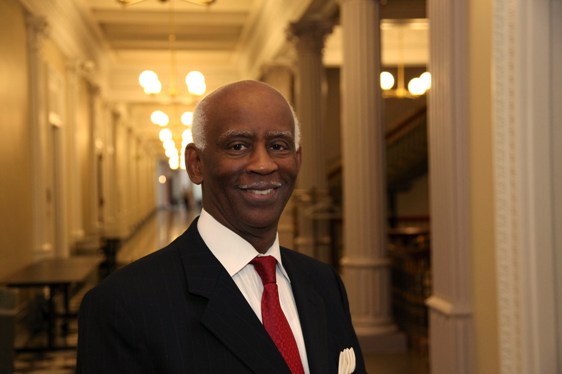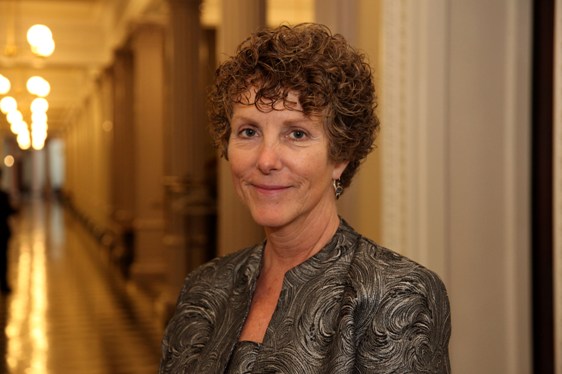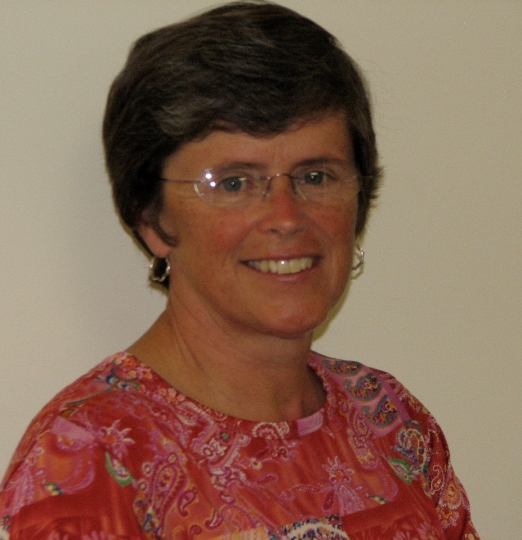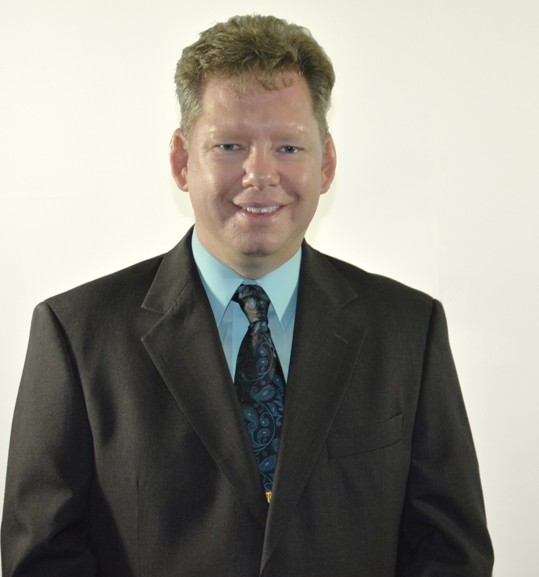Champions of Change Blog
Making a Postive Impact on Students in the Face of Adversity
Posted by on September 28, 2011 at 1:55 PM EDTEd. Note: Champions of Change is a weekly initiative to highlight Americans who are making an impact in their communities and helping our country rise to meet the many challenges of the 21st century.
 As a Champion for Change and as a finalist for the Aspen Prize for Community College Excellence, Mississippi Gulf Coast Community College (MGCCC), recognizes that educating citizens in our society is paramount to the mission of every community college. Located in a region referred to as the Mississippi Gulf Coast, the college offers programs and services designed to enhance the educational level of the residents in the diverse four-counties constituting the college district. The educational and economic role in response to the community for 100 years demonstrates a strong commitment of MGCCC faculty, staff and administration to learning outcomes, completion initiative, and labor-market outcomes, all contributing to the successes experienced by the college. Critical to every institution’s effectiveness is the strong planning and assessment process which ensures that decisions are based on feedback from every component of the institution. From rural to metropolitan service areas, colleges across the country must adapt to changing economic, educational and technological requirements based on outcomes-assessment data.
As a Champion for Change and as a finalist for the Aspen Prize for Community College Excellence, Mississippi Gulf Coast Community College (MGCCC), recognizes that educating citizens in our society is paramount to the mission of every community college. Located in a region referred to as the Mississippi Gulf Coast, the college offers programs and services designed to enhance the educational level of the residents in the diverse four-counties constituting the college district. The educational and economic role in response to the community for 100 years demonstrates a strong commitment of MGCCC faculty, staff and administration to learning outcomes, completion initiative, and labor-market outcomes, all contributing to the successes experienced by the college. Critical to every institution’s effectiveness is the strong planning and assessment process which ensures that decisions are based on feedback from every component of the institution. From rural to metropolitan service areas, colleges across the country must adapt to changing economic, educational and technological requirements based on outcomes-assessment data.The 15 public, two-year institutions in the state of Mississippi with designated service areas by county has increased enrollment to more than 80,000 students. Like other colleges in the nation, MGCCC has witnessed an increasing number of students pursuing higher education with 70 percent of the students planning to transfer to a four-year institution. Strong partnerships with the local business/industry community and military bases have ensured the preparation of more skilled workers for the competitive 21st Century. Technical programs developed in cooperation with specific industries have produced a significant number of graduates with the skills necessary to address labor-market needs in the health care, process technology and maritime fields. The long-standing relationship of working with military installations in providing educational opportunities and services to veterans has resulted in the college being named a Military Friendly School. Further, the college’s participation in a Veteran’s History project several years ago along with local entities resulted in oral histories of World War II veterans recorded for the U.S. Library of Congress.
Learn more about EducationStrengthening the Local Community Through Workforce Development Preparedness
Posted by on September 26, 2011 at 6:38 PM EDTEd. Note: Champions of Change is a weekly initiative to highlight Americans who are making an impact in their communities and helping our country rise to meet the many challenges of the 21st century.
 I am fortunate and blessed to serve as the president of Lawson State Community College. The College plays an important role in the diversification of the workforce in Birmingham and surrounding counties in Alabama. As president of the college, I firmly believe that the area must have an educated, skilled and highly trained population to meet the demands of the local economy and the workforce. The college offers a variety of certificate and degree programs designed to meet the needs of the community, the region and the state. These include college transfer, career technical course offerings and training opportunities.
I am fortunate and blessed to serve as the president of Lawson State Community College. The College plays an important role in the diversification of the workforce in Birmingham and surrounding counties in Alabama. As president of the college, I firmly believe that the area must have an educated, skilled and highly trained population to meet the demands of the local economy and the workforce. The college offers a variety of certificate and degree programs designed to meet the needs of the community, the region and the state. These include college transfer, career technical course offerings and training opportunities. It is important that the college be represented in the varied conversations held throughout the region as far as workforce development and preparedness are concerned. My staff and I work diligently to ensure representation and make sure that as a community stakeholder, the college brings to the table people, processes and training opportunities equipped to have an impact on the local workforce.
Preparation for the workforce starts from the moment a student begins the matriculation process at the college. Students are immediately immersed into the Freshman Academy, also known as the Freshman Encounter: e3 4 life a program designed to equip, engage and empower (e3) freshmen with skills and knowledge that will contribute to their success at Lawson State and to provide effective engagement strategies to facilitate that success. Students begin early to experience and appreciate the demands of academe and the preparation necessary for success in all areas of life. Faculty who teach in the Academy work closely with the Student Persistence through Assistance and Collaborative Efforts (SPACE) Center to prepare students to be more successful in their chosen areas of study. Academy Faculty and the staff of the SPACE Center utilize technology as the primary tool for the acquisition of knowledge and skills. The services provided by these two units, as well as the coordination, and cooperation among other units such as the Student Support Services Program, writing and mathematics laboratories, and an early warning system administered through student services all work together effectively with first generation students throughout their academic endeavors at the college. As a community college, Lawson State is a gateway to the personal success of students and ultimately to the workforce of the community.
Learn more about EducationEducation With Purpose: Teaching Students the Skills Necessary for a Job
Posted by on September 26, 2011 at 3:47 PM EDTEd. Note: Champions of Change is a weekly initiative to highlight Americans who are making an impact in their communities and helping our country rise to meet the many challenges of the 21st century.
 On Wednesday, September 21, I was honored to be included in a Champions of Change Roundtable discussion about two-year colleges and their impact on our nation. It was a great opportunity to talk about the business model Lake Area Technical institute uses to prepare students for today’s workforce.
On Wednesday, September 21, I was honored to be included in a Champions of Change Roundtable discussion about two-year colleges and their impact on our nation. It was a great opportunity to talk about the business model Lake Area Technical institute uses to prepare students for today’s workforce.LATI graduates over 75% of its students. Students attain graduation because they are required to be in an identified program with a graduation plan from the first day of their enrollment. The graduation plan sets expectations and prescribes the courses needed, the course sequence, and attendance requirements. No student is allowed to meander through general courses seeking a path. Instruction is geared to be project-based and hands-on. Program instructors are required to know their students personally and are responsible for student attainment. Instructors are hired based not only upon their work experience but also their ability to connect with students. An instructor’s passion for the occupational area and personality is more important than academic credentials.
Learn more about EducationTeaching the Leaders of Tomorrow
Posted by on September 19, 2011 at 12:45 PM EDTEd. Note: Champions of Change is a weekly initiative to highlight Americans who are making an impact in their communities and helping our country rise to meet the many challenges of the 21st century.
The first time that I looked at the Whitehouse.gov website and read about Champions of Change I knew immediately that I would nominate Chris Lehmann for this recognition. "Out-innovate, out-educate, out-build" - he is doing all three. Mr. Lehmann is the founding principal of the Science Leadership Academy, an innovative public high school in Philadelphia. Developed in partnership with The Franklin Institute science museum, the Science Leadership Academy (SLA) is a progressive science and technology high school founded in 2006. Students at SLA learn in an inquiry-driven, project based environment where collaboration is expected and the core values of "inquiry, research, collaboration, presentation, and reflection" guide learning in every discipline. SLA is a 1:1 laptop school and the first urban high school to be named an Apple Distinguished School.
Learn more about Education, Working FamiliesTransforming Education for the 21st Century
Posted by on September 16, 2011 at 4:58 PM EDTEd. Note: Champions of Change is a weekly initiative to highlight Americans who are making an impact in their communities and helping our country rise to meet the many challenges of the 21st century.
 In the conversations about transforming education for the 21st Century, often the most critical stakeholder voice is missing. That is the voice of students. From the classroom to the State Department of Education it is rare that students have a say in what, how, why, when, and where they learn. All of these are key ingredients in thinking about school transformation. And since the impetus for change is the outcomes the structures of schools have on children, it makes sense to engage youths in the decisions that will ultimately affect them.
In the conversations about transforming education for the 21st Century, often the most critical stakeholder voice is missing. That is the voice of students. From the classroom to the State Department of Education it is rare that students have a say in what, how, why, when, and where they learn. All of these are key ingredients in thinking about school transformation. And since the impetus for change is the outcomes the structures of schools have on children, it makes sense to engage youths in the decisions that will ultimately affect them.Enter Youth and Adults Transforming Schools Together (YATST). Like the name suggests, this organization partners with schools to give both young people and adults the tools they need to transform schools. This means fostering relationships, relevance, rigor, and responsibility across and throughout the schools. YATST student led teams have learned how to engage with faculty at school wide faculty meetings, presented policy changes to school boards, and engaged student voice to make meaningful change at the schools.
Learn more about Education, Working FamiliesWorking to Give All Students the Ability to Succeed
Posted by on September 16, 2011 at 12:36 PM EDTEd. Note: Champions of Change is a weekly initiative to highlight Americans who are making an impact in their communities and helping our country rise to meet the many challenges of the 21st century.
 In many ways, Brett was a typical Oklahoma high school student. He and his older brothers lived with their parents in a happy, middle-class home. As the youngest of three boys, there were equal amounts of idol worship for his brothers, and playful torment from them. When it came to school, however, he experienced far different kind of torment. Already seen as different because of a noticeable limp from cerebral palsy, Brett was also diagnosed with a significant social anxiety disorder which made him especially shy and awkward among his peers. His teachers and parents agreed that Brett needed to receive special education services, and Brett accepted this – in part because he didn’t have any other vision for his future.
In many ways, Brett was a typical Oklahoma high school student. He and his older brothers lived with their parents in a happy, middle-class home. As the youngest of three boys, there were equal amounts of idol worship for his brothers, and playful torment from them. When it came to school, however, he experienced far different kind of torment. Already seen as different because of a noticeable limp from cerebral palsy, Brett was also diagnosed with a significant social anxiety disorder which made him especially shy and awkward among his peers. His teachers and parents agreed that Brett needed to receive special education services, and Brett accepted this – in part because he didn’t have any other vision for his future.There are more than 95,000 students in Oklahoma receiving special education services – nearly 15 percent of the total student population. Despite the many efforts and good intentions of parents and school personnel, most of these students don’t have a vision beyond graduation. It was into this void that Tech-Now, Inc. was conceived by Champion for Change Rick DeRennaux.
Learn more about Disabilities, Working Families
- &lsaquo previous
- …
- 156
- 157
- 158
- 159
- 160
- 161
- 162
- 163
- 164
- …
- next &rsaquo
White House Blogs
- The White House Blog
- Middle Class Task Force
- Council of Economic Advisers
- Council on Environmental Quality
- Council on Women and Girls
- Office of Intergovernmental Affairs
- Office of Management and Budget
- Office of Public Engagement
- Office of Science & Tech Policy
- Office of Urban Affairs
- Open Government
- Faith and Neighborhood Partnerships
- Social Innovation and Civic Participation
- US Trade Representative
- Office National Drug Control Policy
categories
- AIDS Policy
- Alaska
- Blueprint for an America Built to Last
- Budget
- Civil Rights
- Defense
- Disabilities
- Economy
- Education
- Energy and Environment
- Equal Pay
- Ethics
- Faith Based
- Fiscal Responsibility
- Foreign Policy
- Grab Bag
- Health Care
- Homeland Security
- Immigration
- Innovation Fellows
- Inside the White House
- Middle Class Security
- Open Government
- Poverty
- Rural
- Seniors and Social Security
- Service
- Social Innovation
- State of the Union
- Taxes
- Technology
- Urban Policy
- Veterans
- Violence Prevention
- White House Internships
- Women
- Working Families
- Additional Issues

